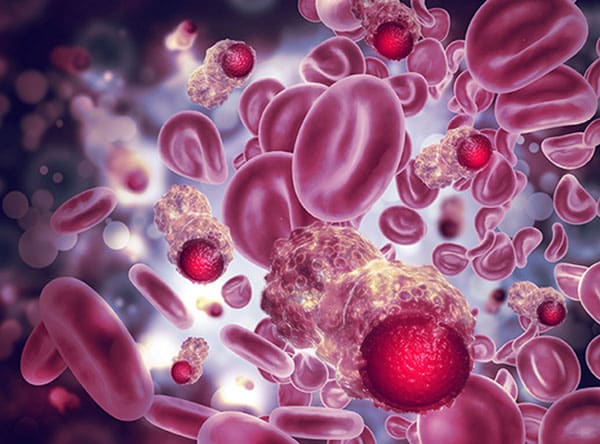Targeted Therapy for Rare Blood Cancers
An inhibitor of the growth-stimulating FGFR1 protein was approved for patients with a rare type of blood cancer.
The U.S. Food and Drug Administration (FDA) has approved pemigatinib (Pemazyre) for adult patients with relapsed or refractory myeloid/lymphoid neoplasms with a certain genetic alteration involving the fibroblast growth factor receptor 1 (FGFR1) gene.
FGFR1 encodes a protein embedded in the cell surface that stimulates signaling and cellular proliferation upon binding with specific extracellular molecules. In rare instances, the FGFR1 gene fuses with another gene (an alteration known as a genetic rearrangement) and encodes a fusion protein that drives the development of myeloid/lymphoid neoplasms. Pemigatinib inhibits the activity of FGFR1 to suppress the growth of FGFR1-driven cancers.

The approval is based on results from the multicenter, open-label, single-arm FIGHT-203 phase II clinical trial. The trial enrolled 28 patients with relapsed or refractory myeloid/lymphoid neoplasms with FGFR1 rearrangement. Patients were either not eligible for allogenic hematopoietic stem cell transplantation or had relapsed after undergoing the procedure or after receiving another disease-modifying therapy.
Twenty-two of the 28 enrolled patients (79 percent) had a complete response to pemigatinib. Among 18 patients who had chronic disease in the marrow, with or without extramedullary (outside of the marrow) disease, 14 had a complete response (78 percent). The median duration of response was not reached. Two of the four patients with disease in the blast phase in the marrow with or without extramedullary disease experienced a complete response. One of three patients with only extramedullary disease had a complete response.
Common adverse reactions were high blood phosphorous levels, nail toxicity, hair loss, stomatitis, diarrhea, dry eye, fatigue, rash, abdominal pain, anemia, constipation, dry mouth, nose bleeds, serous retinal detachment, extremity pain, decreased appetite, dry skin, indigestion, back pain, nausea, blurred vision, peripheral edema, and dizziness.
Myeloid/lymphoid neoplasms with FGFR1 rearrangement are a group of rare and aggressive blood tumors that affect 1 in 100,000 individuals in the United States.
The FDA rendered its approval on August 26, 2022.
